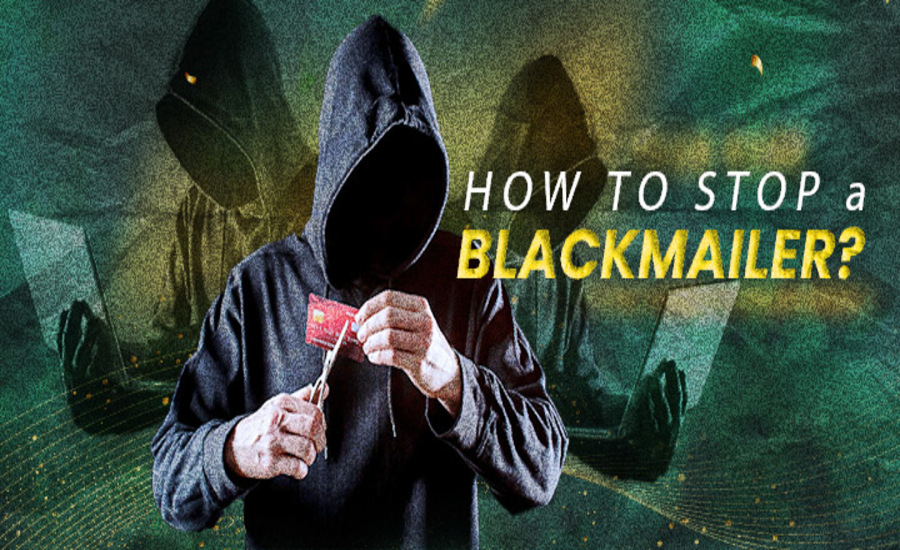Blackmail is an insidious crime that capitalizes on fear, manipulation, and the vulnerability of individuals. Whether it takes the form of personal threats, reputational damage, financial extortion, or any other leverage, blackmail can create a profound sense of helplessness. The victim, trapped between protecting their secrets and the fear of public exposure, often finds themselves making irrational decisions. In this digital age, the scope of blackmail has expanded, affecting individuals and organizations alike. The stakes can be high, and stopping a blackmailer becomes a delicate, yet necessary, endeavor. This article aims to outline effective strategies to halt blackmail, combining practical advice with expert insights to empower victims and those supporting them.
Understanding Blackmail: The Crime and Its Impact
Blackmail is not a new crime, but its methods and targets have evolved. Traditionally, it involved the threat of revealing damaging information unless a demand, usually financial, was met. However, with the rise of technology, blackmail has expanded into various forms, including sextortion, corporate blackmail, and online reputation attacks. The psychological impact of blackmail can be devastating. Victims may experience anxiety, depression, and in extreme cases, a sense of isolation, believing they have no one to turn to.
In modern society, where personal and professional reputations are highly valued, the fear of public disgrace can be just as powerful as the fear of physical harm. This is why blackmail can be such an effective tool for criminals. It leverages the victim’s fears, exploiting their insecurities to control their behavior. Understanding the psychological impact of blackmail is crucial to stopping it. The more you know about the mechanisms of fear and control that the blackmailer is using, the better equipped you will be to counteract their tactics.
From a legal standpoint, blackmail is a criminal offense in most jurisdictions. However, the burden of proof often lies on the victim, making it difficult to take legal action without substantial evidence. The challenges of proving blackmail, combined with the victim’s reluctance to go public, can make pursuing legal recourse a daunting prospect. Yet, understanding that blackmail is not just a personal attack but a punishable crime can give victims the courage to seek help.
Initial Response: What To Do When You Are Being Blackmailed
The first instinct when faced with blackmail is often panic. The overwhelming emotions of fear, shame, and confusion can cloud judgment, leading to impulsive decisions. However, the first few steps you take are critical in determining how successfully you can stop the blackmailer. If you ever find yourself in this situation, remember that staying calm and rational is your best defense. Do not react hastily, and avoid making any immediate decisions that could worsen the situation.
The very first step is to assess the situation. Take a deep breath and carefully consider the blackmailer’s demands, the information they claim to have, and the potential consequences of exposure. Many times, the threat is overblown or fabricated. The blackmailer may be bluffing, hoping to intimidate you into compliance. As difficult as it may seem, try to maintain a level-headed approach to analyze the situation logically.
Further, social media interactions
Next, collect and preserve any evidence of the blackmail attempt. This can include emails, text messages, social media interactions, or even phone call records. This evidence may become crucial if you decide to involve law enforcement or legal professionals. Screenshots, recordings, and written documentation of every interaction with the blackmailer can build a strong case against them. Make sure you keep this evidence secure and backed up in multiple locations, in case you need to hand it over to authorities.
One common mistake victims make is giving in to the blackmailer’s initial demands, hoping that the situation will go away. Unfortunately, blackmailers rarely stop after receiving their first payment or favor. Instead, they often escalate their demands, knowing they have control over their victim. As tempting as it may be to pay off a blackmailer, this usually emboldens them and perpetuates the cycle of extortion. It’s important to stand firm and refuse to give in to their demands, no matter how intimidating they may seem.

Seeking Help: When and How To Involve Authorities
It’s crucial to understand that blackmail is not a problem that should be dealt with in isolation. While the nature of the crime may lead victims to feel ashamed or embarrassed, seeking help from trusted individuals or professionals is often the best course of action. Depending on the severity of the blackmail, this help may come from friends, family, legal professionals, or law enforcement.
Deciding when to involve the authorities can be challenging. In many cases, victims fear that reporting the crime will escalate the situation, leading to the very exposure they’re trying to avoid. However, involving law enforcement early on can significantly increase your chances of stopping the blackmailer. Most countries have legal protections for victims of blackmail, and law enforcement agencies are trained to handle these cases with discretion and professionalism. If you feel overwhelmed or unsure about your options, seeking legal advice from a lawyer who specializes in blackmail or extortion cases can provide clarity and reassurance.
When you approach law enforcement, ensure that you present all the evidence you have gathered. This will help them understand the scope of the blackmail and develop a strategy for stopping the perpetrator. In some cases, the police may be able to intervene directly, confronting the blackmailer before any further harm is done. In other situations, they may guide you through the process of filing a restraining order or taking other legal action.
If you’re uncomfortable with involving law enforcement immediately, consider consulting a lawyer first. An experienced lawyer can help you evaluate the strength of your case, advise you on your rights, and represent your interests in court if necessary. They can also act as an intermediary between you and the blackmailer, helping to negotiate a resolution without compromising your safety or privacy.
Psychological Tactics: Taking Away the Blackmailer’s Power
Blackmail thrives on fear and control. The blackmailer’s main tool is their ability to manipulate their victim’s emotions, creating a sense of helplessness and dependence. One of the most effective ways to stop a blackmailer is by taking away their power. This can be done through various psychological tactics designed to undermine their control and restore your confidence.
One approach is to confront the blackmailer directly, but carefully. In some cases, letting the blackmailer know that you are aware of their tactics and refuse to be intimidated can be enough to dissuade them from continuing. However, this approach should be used with caution. If you feel that confronting the blackmailer could put you in further danger, it’s best to avoid direct confrontation and seek professional advice first.
Another strategy is to reverse the power dynamic by showing the blackmailer that their threats no longer have the desired effect. If the blackmailer sees that you are no longer afraid or emotionally affected by their threats, they may lose interest in pursuing further demands. This tactic requires immense emotional strength, but it can be highly effective in breaking the psychological hold that the blackmailer has over you.
If possible, consider pre-empting the blackmail by revealing the threatened information yourself. This is a bold move that completely removes the blackmailer’s leverage, as they no longer have anything to hold over you. Of course, this option may not be suitable for everyone, particularly if the information is highly sensitive or could cause serious harm. However, in cases where the potential fallout is manageable, this tactic can be a powerful way to regain control of the situation.
Practical Steps to Secure Your Personal and Digital Life
In many blackmail cases, especially those involving online threats, the blackmailer gains access to personal information through digital means. Securing your personal and digital life is a crucial step in stopping a blackmailer and preventing future incidents. There are several practical measures you can take to protect your privacy and reduce the risk of being targeted.
First, review your online presence and remove any sensitive information that could be used against you. This includes personal photos, social media posts, and other details that may expose you to potential blackmailers. Be mindful of the privacy settings on your social media accounts, and ensure that only trusted individuals have access to your personal information. Regularly update your passwords, and use strong, unique combinations that are difficult to guess.
Consider using two-factor authentication (2FA) for your online accounts. This adds an extra layer of security by requiring a second form of verification, such as a text message or email code, in addition to your password. This makes it significantly more difficult for blackmailers to gain unauthorized access to your accounts, even if they have your password.
If you suspect that the blackmailer has already accessed your personal accounts, take immediate action to secure them. Change all passwords, enable 2FA, and monitor your accounts for any suspicious activity. In some cases, it may be necessary to temporarily deactivate certain accounts until the threat has been neutralized.
If the blackmail involves sensitive files or media, consider using encryption software to protect your data. Encryption ensures that even if someone gains access to your files, they will be unreadable without the correct decryption key. This can be particularly useful in preventing blackmailers from accessing compromising photos, videos, or documents.

The Role of Professional Counseling: Dealing with Emotional Trauma
While practical steps are essential in stopping a blackmailer, it is equally important to address the emotional trauma that often accompanies such an experience. Blackmail can leave lasting psychological scars, and many victims struggle with feelings of shame, guilt, and helplessness long after the blackmail has ended. Seeking professional counseling can help you process these emotions and begin the healing process.
Counseling provides a safe, supportive environment where you can explore the impact of the blackmail on your mental health. A trained therapist can help you develop coping strategies to manage anxiety, depression, and other emotional challenges. In some cases, therapy may also be necessary to address deeper issues of trust and self-esteem that have been damaged by the blackmail experience.
In addition to one-on-one counseling, support groups can also be a valuable resource for victims of blackmail. Connecting with others who have gone through similar experiences can provide comfort and reassurance, reminding you that you are not alone. Support groups also offer a space to share advice and strategies for coping with the aftermath of blackmail.
Legal Options: Filing a Lawsuit and Pressing Charges
If the blackmail has caused significant harm, whether financial, emotional, or reputational, you may have the option to file a lawsuit against the perpetrator. Suing a blackmailer can be a complex legal process, but it is an important way to seek justice and hold the offender accountable for their actions.
To file a lawsuit, you will need to consult with a lawyer who specializes in blackmail or extortion cases. Your lawyer will help you build a strong case by gathering evidence, drafting legal documents, and representing you in court. If the blackmailer is found guilty, you may be entitled to compensation for the damages you have suffered.
Pressing criminal charges is another option. In most jurisdictions, blackmail is classified as a serious criminal offense, punishable by imprisonment and fines. If law enforcement has gathered sufficient evidence, they may pursue criminal charges against the blackmailer. Even if the blackmailer is not convicted, the legal process can serve as a powerful deterrent, signaling that you are willing to fight back and protect your rights.
In some cases, a restraining order or protective order may be necessary to keep the blackmailer from contacting you further. This legal tool can provide a sense of security and help prevent the blackmailer from making further threats.
Avoiding Future Blackmail: Proactive Measures and Awareness
Preventing future incidents of blackmail involves a combination of vigilance, awareness, and proactive measures. By taking steps to secure your personal life, online presence, and financial assets, you can significantly reduce the risk of being targeted by blackmailers in the future.
One of the most important preventive measures is to be mindful of who you trust with sensitive information. Be cautious about sharing personal details, photos, or other private content with individuals you do not know well or fully trust. While it may seem harmless at the time, this information can easily be used against you later.
Another key step is to educate yourself about the different forms of blackmail and the tactics used by perpetrators. Understanding how blackmailers operate will help you recognize the warning signs early and take action before the situation escalates.
Finally, consider seeking legal advice or consulting a cybersecurity expert to develop a comprehensive plan for protecting your personal and professional life. These professionals can help you identify potential vulnerabilities and implement strategies to safeguard your privacy.
Conclusion:
Stopping a blackmailer is a complex, often emotionally charged process, but it is possible with the right strategies and support. Whether through legal action, psychological tactics, or securing your digital life, there are effective ways to regain control and prevent further harm. It’s important to remember that blackmail is a crime, and you are not alone in dealing with it. By seeking help from professionals, gathering evidence, and standing firm against the blackmailer’s demands, you can stop the cycle of manipulation and move forward with confidence. Ultimately, the goal is not only to stop the immediate threat but to empower yourself to take back control of your life and protect your future.










